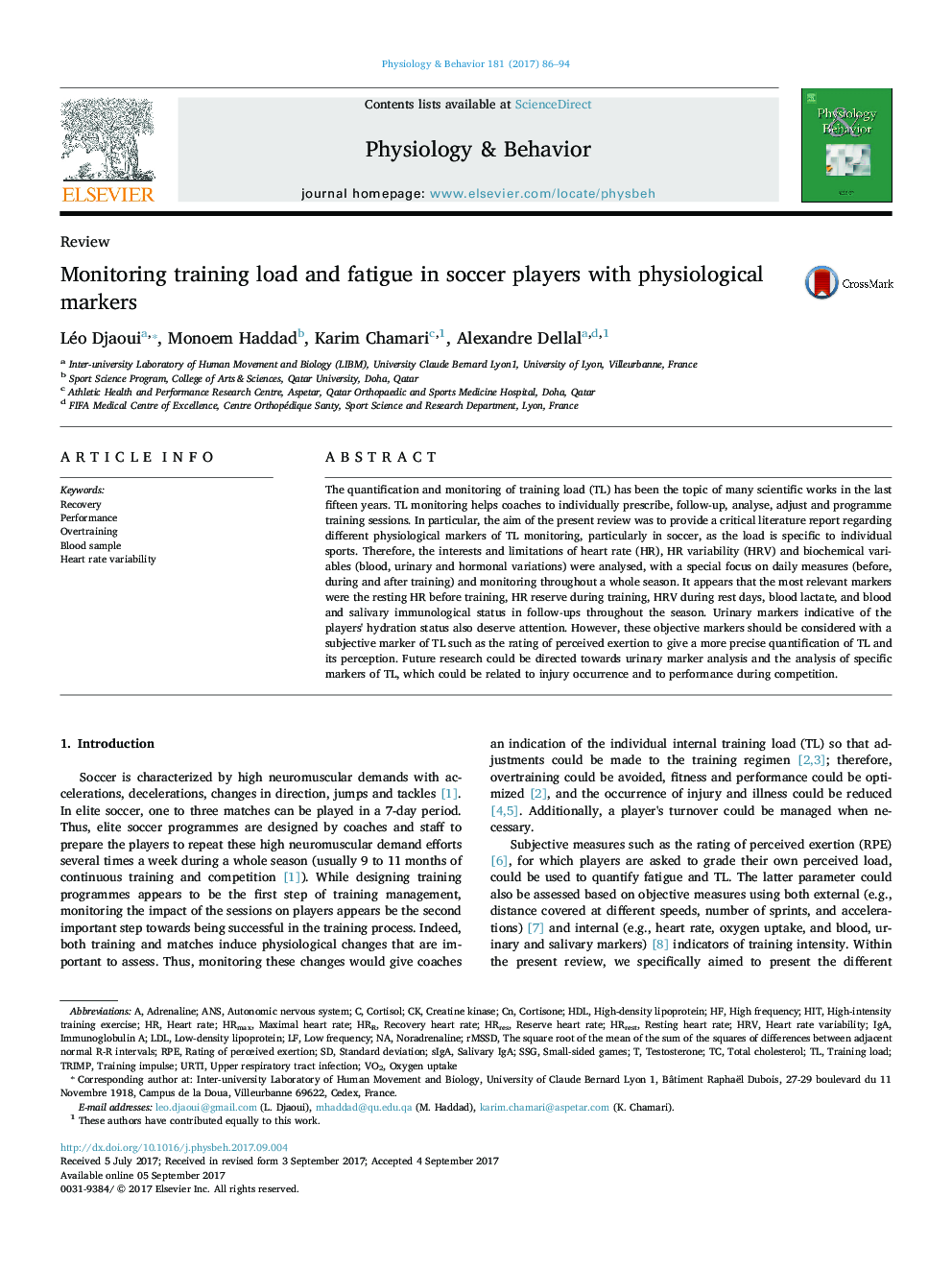| Article ID | Journal | Published Year | Pages | File Type |
|---|---|---|---|---|
| 5593568 | Physiology & Behavior | 2017 | 9 Pages |
Abstract
The quantification and monitoring of training load (TL) has been the topic of many scientific works in the last fifteen years. TL monitoring helps coaches to individually prescribe, follow-up, analyse, adjust and programme training sessions. In particular, the aim of the present review was to provide a critical literature report regarding different physiological markers of TL monitoring, particularly in soccer, as the load is specific to individual sports. Therefore, the interests and limitations of heart rate (HR), HR variability (HRV) and biochemical variables (blood, urinary and hormonal variations) were analysed, with a special focus on daily measures (before, during and after training) and monitoring throughout a whole season. It appears that the most relevant markers were the resting HR before training, HR reserve during training, HRV during rest days, blood lactate, and blood and salivary immunological status in follow-ups throughout the season. Urinary markers indicative of the players' hydration status also deserve attention. However, these objective markers should be considered with a subjective marker of TL such as the rating of perceived exertion to give a more precise quantification of TL and its perception. Future research could be directed towards urinary marker analysis and the analysis of specific markers of TL, which could be related to injury occurrence and to performance during competition.
Keywords
HRmaxRPEHRRSSGsalivary IgAHDLVO2RMSSDHRVhigh-density lipoproteinsIgAadrenalineResting heart rateHITstandard deviationimmunoglobulin AIgATraining loadSmall-sided gamestestosteroneOvertrainingOxygen uptakeMaximal heart rateAutonomic nervous systemrating of perceived exertionRecoveryANSURTIHeart rateUpper respiratory tract infectionhigh frequencylow frequencyLow-density lipoproteinLDLBlood samplenoradrenalineheart rate variabilityPerformanceCreatine kinasetotal cholesterolcortisolcortisone
Related Topics
Life Sciences
Biochemistry, Genetics and Molecular Biology
Physiology
Authors
Léo Djaoui, Monoem Haddad, Karim Chamari, Alexandre Dellal,
